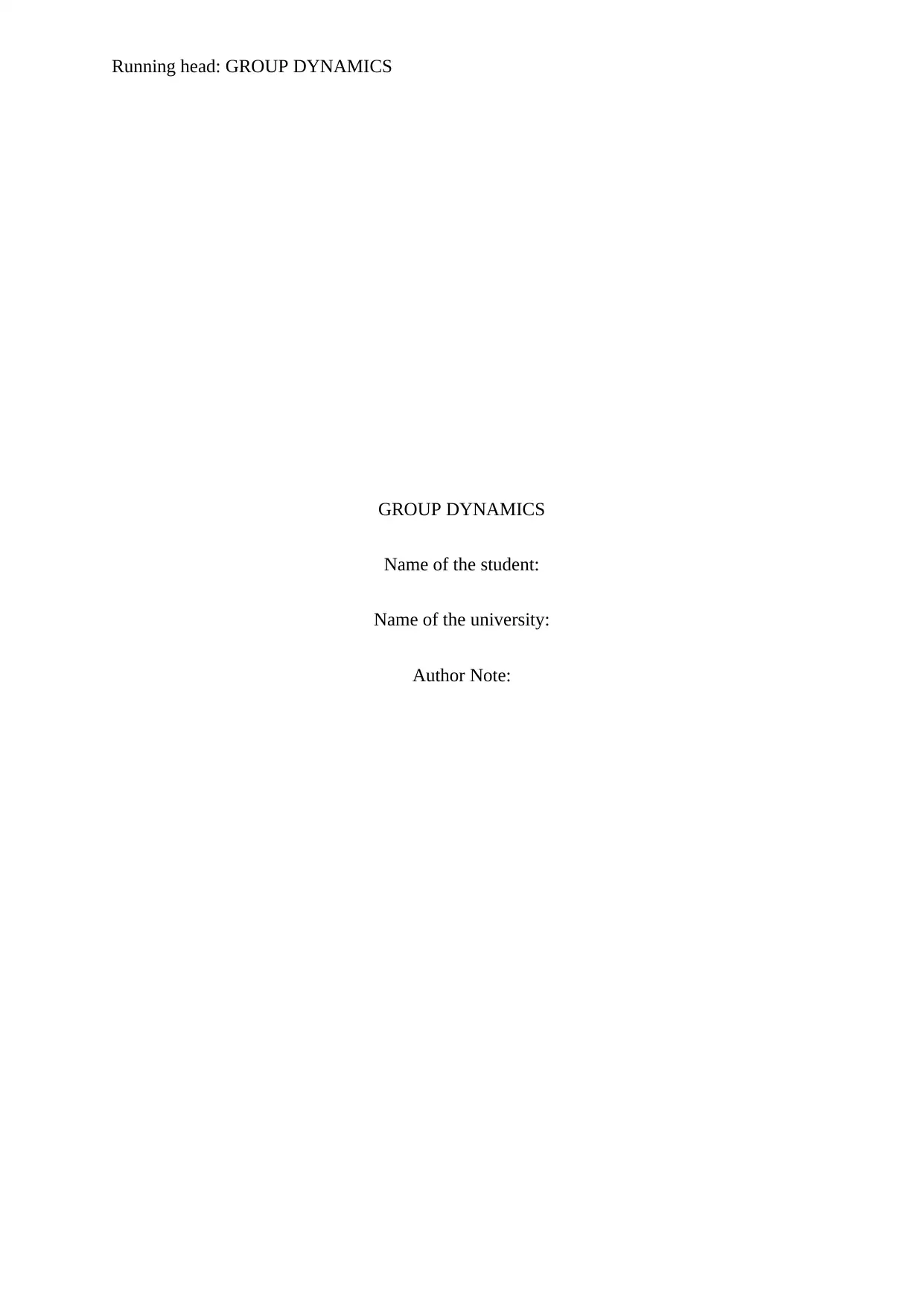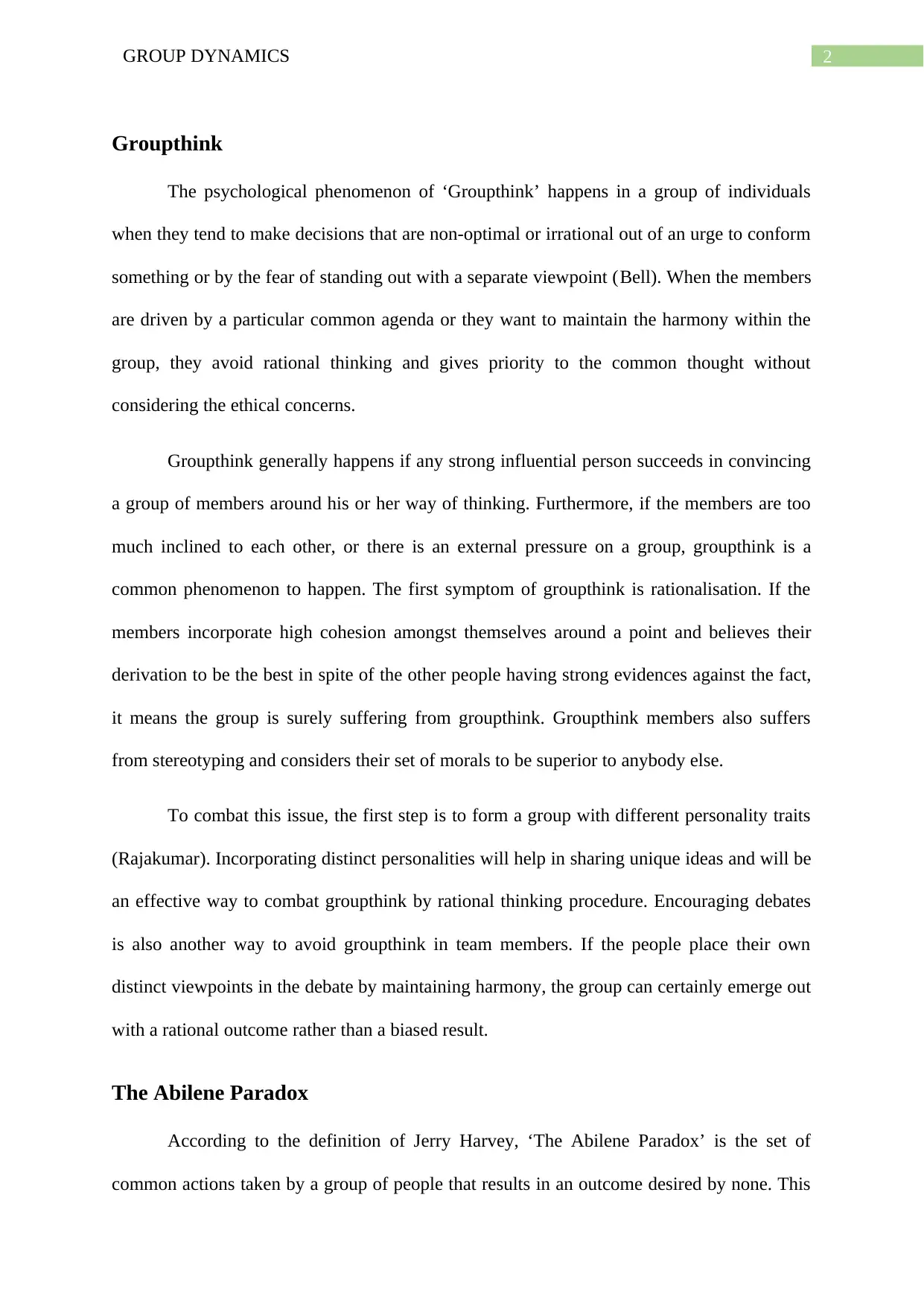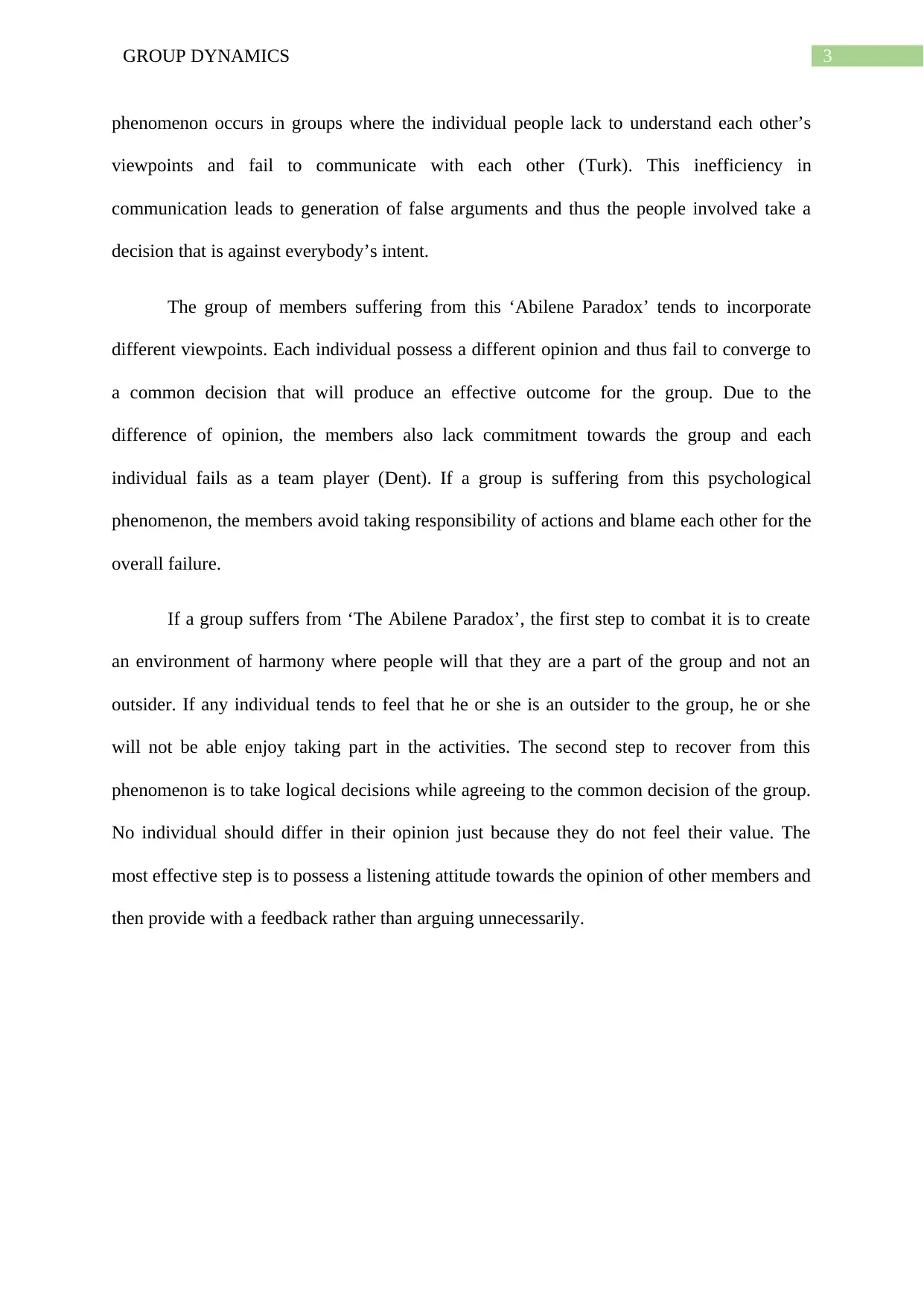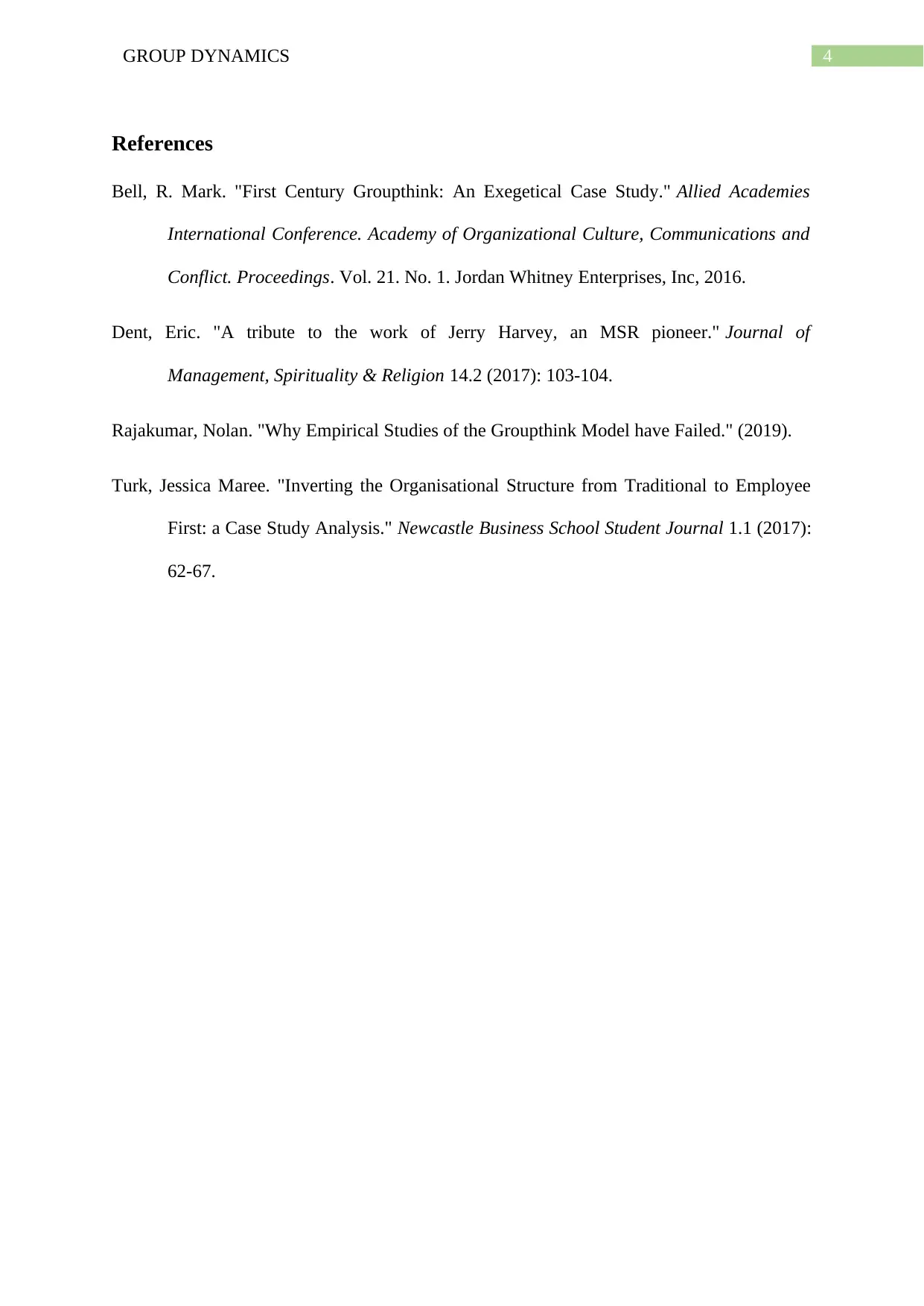University Assignment: Group Dynamics, Groupthink, Abilene Paradox
VerifiedAdded on 2022/09/13
|5
|792
|15
Homework Assignment
AI Summary
This assignment delves into the psychological concepts of group dynamics, focusing on two key phenomena: groupthink and the Abilene Paradox. The paper defines groupthink as a psychological phenomenon where individuals within a group prioritize conformity and harmony over critical thinking, often leading to suboptimal or irrational decisions. It explores the causes, symptoms, and potential remedies for groupthink, such as incorporating diverse personalities and encouraging debates. The assignment also examines the Abilene Paradox, where a group collectively agrees to a course of action that no individual actually desires, due to miscommunication and a fear of dissent. The paper outlines the characteristics of the Abilene Paradox, including poor communication and lack of individual commitment, and proposes strategies to overcome it, such as fostering an environment of open communication and encouraging active listening. The analysis draws on various academic sources to support its arguments, providing a comprehensive understanding of these critical aspects of group behavior and their impact on decision-making processes.
1 out of 5







![[object Object]](/_next/static/media/star-bottom.7253800d.svg)